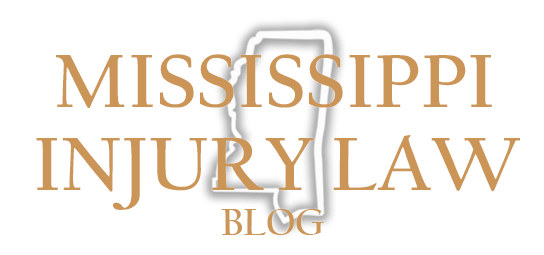Under Mississippi Workers’ Compensation Law, businesses that have five or more employees are required to carry workers’ compensation insurance coverage. What does that mean to the average worker who is employed by these businesses? As a general rule, if you are injured while working or as a result of a hazard of the job (whether you are on the clock or not)– your injury should be covered by your employer’s workers’ compensation insurance. There are some exceptions to this rule, but we will save that topic for a future blog post. Let’s talk about what you are entitled to when you are injured on your job:
- Choice of Physician – You do not have to go with the flow and treat with the “company doctor” just because your employer tells you to. You have the right as an injured worker to treat with the doctor you want to treat with. A lot of people are much more comfortable seeing their family doctor than a stranger their employer sends them to. The key point is this: you have a choice, and you are the one that gets to make it. But don’t delay. In Mississippi, if you wait too long, your choice will be lost.
- Medical Treatment – The insurance company is responsible for paying for the “reasonable and necessary medical services and supplies” as the injury and process of recovery requires. This includes doctor’s visits, physical therapy, injections, surgeries, and even referrals your choice of physician makes to other specialists if needed – although your choice of physician can only refer out to one specialist per specialty. You are also entitled to payment for your prescriptions that might be needed during your treatment.
(BEWARE: The employer and carrier are entitled under the law to notice an EME or Employer Medical Evaluation if they so choose. They are allowed to have a doctor of their choosing evaluate the injured worker once and form independent opinions, which will often conflict with what your treating physician says. This is one of the MANY reasons it’s important to consult an attorney that can help you navigate that aspect of your claim in the best way possible)
- Mileage – This one is simple and is exactly what it sounds like. The insurance carrier is responsible for reimbursing you for mileage to and from doctor’s appointments, physical therapy appointments, trips to the pharmacy, etc. They owe you round trip. Your responsibility is just to make sure you document and submit it. The rate of payment for mileage shifts year to year, but for 2022 the mileage rate is $0.585/mile. Once you submit the mileage for reimbursement, the insurance company has 30 days to pay that mileage.
- Temporary Total Disability/ “TTD” – picture this: you go see your doctor with a work injury. That doctor tells you that you are to hurt to return to work. The doctor gives you a work excuse that you give to your employer. What now? If that doctor takes you off work for five or more consecutive days, you are entitled to temporary payment of 66 2/3% of your average weekly wage, subject top weekly maximum under state law, for as long as the doctor keeps you off work. If you are off for more than 14 days, the law says the insurance company also owes you for those first five days too. But what if your doctor doesn’t take you totally off work, but rather gives you specific “do’s and don’ts”? The first thing you do is take that to your employer and ask if they have work for you to do that doesn’t violate those restrictions. If they do not, the insurance company is responsible for continuing to pay you TTD until you are either released or accommodated at your job.
- Permanent Partial Disability/ “PPD” – At some point in your case, the doctor of your choice is going to tell you that they have done everything they can to get you better. This is what we call maximum medical improvement or “MMI.” Maybe that doctor got you back to 100%. More likely is that you will have some degree of medical impairment for the rest of your life. If the work injury involved a “scheduled member” (such as an arm, leg, hand, foot), you are entitled to payment based on a set number of weeks depending on the body part injured. That number of weeks is multiplied by 66 2/3% of your average weekly wage, which is then multiplied by the percentage impairment assigned by your doctor. These benefits are owed to you even if you have returned to work and are making the same or more money than before you were hurt.
Assuming the insurance company admits and pays for your workers’ compensation injury, and you have hired a lawyer to help you, usually what comes next is a hearing with an administrative law judge. This judge will determine if you have a loss of wage-earning capacity (for body as a whole cases – such as back injuries) or loss of industrial use (for scheduled member cases). This is heavily fact dependent and varies from case to case. This is why it is CRUCIAL for you to hire a lawyer and hire one quickly once you get hurt. Don’t go through the stress of trying to navigate the workers’ compensation system alone.
If you or a loved one have any questions regarding Mississippi Workers’ Compensation Law or was injured at work contact Chhabra & Gibbs, P.A. for a free consultation at 601-948-8005 and let our experienced workers’ compensation attorneys stand up for you.

